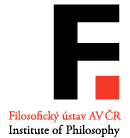
14. 10. 2024, 14.00, the lecture room of the FLÚ, Jilská 1, Prague 1,
Prof. Danilo Facca (Institute of Philosophy and Sociology, Polish Academy of Sciences)
lecture
Department of Comenius Studies and Early Modern Intellectual History of The Institute of Philosophy of the Czech Academy of Sciences
Johann Paul Felwinger created the canon of the ‘Altdorfine philosophy’ (Scherb, Piccart, Soner, a variant of post-Zabarellian Aristotelianism), presenting himself as its continuator in the middle of the 17th century. Pivotal to this theoretical perspective is the opposition of two epistemological and methodological options: acroamatic/analytical vs. exoteric/dialectical, where the former prevails over the latter. This dichotomy was put forward during the controversy against Ramism, but now the question is whether it is of any use in the fervor of confessional controversies, in which the Lutheran Felwinger personally participated by dueling with the Socinians (Crell) and Catholics (van Walenburch brothers) on the topic of the criterion of truth in matters of faith. Almost all of Felwinger’s literary output derives from the academic practice of dispute, of which he also offers a theoretical exposition (Brevis commentatio de disputatione, 1659). Despite this rehabilitation of dialectic in practice, a theoretical elaboration of this topic – on a par with e.g. Leibnizian Commentatiuncula de judice controversiarum – is lacking in Felwinger. In general, though, this reduction of the religious controversy to disputatio can be favorably regarded, being the effect of the vitality of pan-European academic models and their capacity of stabilizing confessional and intellectual conflicts in the middle of the 17th century.
Invitation to download here.


